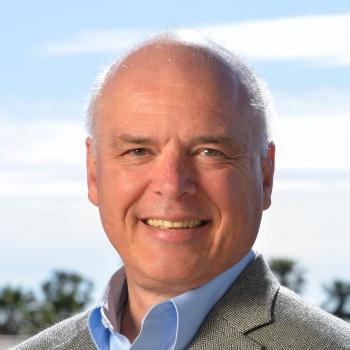David Miller
23 - 28 June 2024
Stanford University
Stanford, California USA
Events
David Miller
Stanford University

A New way of Making, Using and Understanding Optics
Silicon photonics allows circuits with large numbers of elements that offer many new capabilities. Fortunately, some very convenient architectures, mathematics and algorithms allow simple control of this complexity, including even self-configuring circuits that adapt in real time. Such complex optics is, however, quite unlike the previous optics of lenses, mirrors and prisms, so we also need new ways to think about it, physically and mathematically. Fortunately, there is a very powerful new “modal” approach for these and other complex optical systems. This turns out to be both mathematically straightforward and physically quite directly meaningful. It leads to new understanding of old optics, such as why your mobile phone camera needs thickness and where diffraction limits really come from, leads to new fundamental physical laws and limits, and opens new classes of optical systems and applications. We will introduce these modal ideas, showing how these lead to new understanding and limits in optics and waves generally, and relate them to the ideas, circuits and applications of self-configuring photonics.
About the Speaker
David Miller (B. Sc., St. Andrews, Ph.D., Heriot-Watt) is the W. M. Keck Professor of Electrical Engineering, and Professor by Courtesy of Applied Physics at Stanford University. Before Stanford, he was with Bell Laboratories from 1981 to 1996, as a department head from 1987. His interests include nanophotonics, quantum-well optoelectronics, and optics in information sensing, interconnects, and processing. He has published over 300 scientific papers, holds over 75 patents, has a Google h-index of over 110, is the author of the textbook Quantum Mechanics for Scientists and Engineers (Cambridge, 2008), and has taught open online quantum mechanics classes to over 70,000 students.
He was President of the IEEE LEOS (now Photonics Society) in 1995, and has served on Boards for various societies, companies, and university and government bodies.
He was awarded the OSA Adolph Lomb Medal and the R. W. Wood Prize, the ICO International Prize in Optics, the IEEE Third Millennium Medal, and the 2013 Carnegie Millennium Professorship. He is also a Fellow of AAAS, APS, OSA, IEEE, the Electromagnetics Academy, the Royal Society of London and the Royal Society of Edinburgh, holds two Honorary Doctorates, and is a Member of the US National Academies of Sciences and of Engineering.
